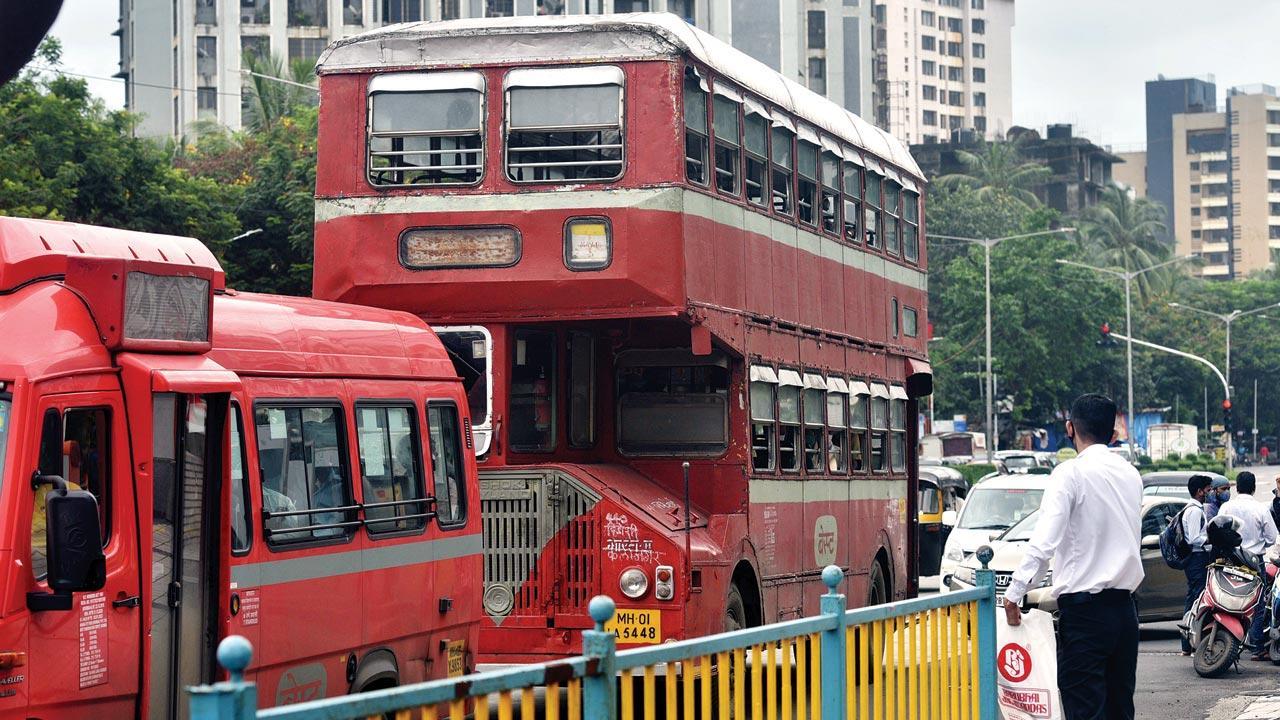Home / Mumbai / Mumbai News / Article /
Mumbai: BEST’s new double-deckers will now arrive only in 2022
Updated On: 06 August, 2021 07:52 AM IST | Mumbai | Rajendra B. Aklekar
Government push for clean energy has meant double cost and double delay for the undertaking that had planned to get 100 diesel-powered buses by 2021

BEST had just 60 double-deckers in its fleet in December 2020
The policy shift towards electric vehicles has disrupted BEST’s double-decker bus maths with costs shooting up and the procurement going back to the drawing table. Its chief told mid-day on Thursday that despite the “electrifying delay”, the e-buses will come by 2022.
Following emotional appeals from Mumbaikars, first reported by mid-day, the undertaking had in November 2020 placed orders for 100 automatic transmission Bharat Standard VI class, non-AC double-decker buses with power-operated doors.



